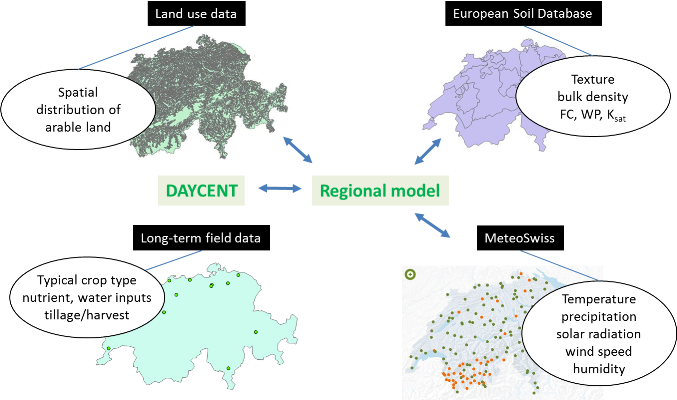Predicting Regional Crop Production in Response to Climate Extreme
Project Description
The research project will determine how climate extremes affect crop production and the change in net greenhouse gas emissions from soils at the regional scale, considering a range of biophysical constraints and typical management practices. Our approach is to integrate extensive database search and the DAYCENT model in GIS context. We will simulate Swiss agroecosystems across different spatial and temporal scales. Model results will be used to further develop and evaluate management adaptation scenarios under various climate change predictions.
Detailed Project Description
As an integral part of climate change, extreme climate events have been observed in Europe over the last decades. For a range of emission scenarios, global climate models predict that the frequency and duration of temperature extremes and heavy precipitation events are likely to continue toward the end of the 21st century. Climate change is expected to develop regionally different climate constraints to agricultural crop production, hence leading to a major spatial land-use change. Unlike positive, negative, or no effect of mean climate change across different regions, climate extremes increase the vulnerability of agriculture and make its adaptation to climate change non-trivial. Crop growth and development exhibit specific threshold responses to each climatic factor. Our understanding of crop responses and feedbacks to climate change is still lacking. Consequently, the dynamics of plant-soil interactions are highly uncertain but they are important in regulating greenhouse gas emissions from agricultural soils. Therefore, the research project will determine how climate extremes affect crop production and change net greenhouse gas emissions from soils at the regional scale, considering a range of biophysical constraints and typical management practices.
For futher information please contact Johan Six ().

